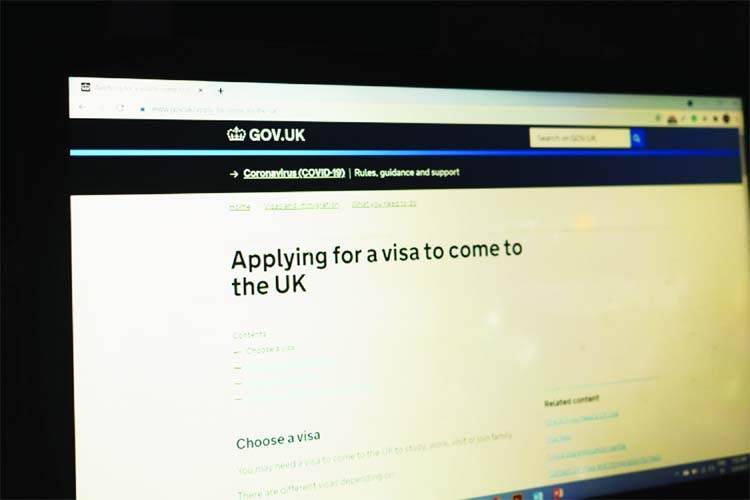
BBC :
For the last couple of years, Shaily Agrawal, a 25-year-old digital communication specialist based in New Delhi, has felt out of place in her own country.
She says the India she held on to has “drastically changed” with a “lot of contrast” now between her beliefs and the “direction the country is heading towards”.
While a polarised political environment in recent years had made Agrawal think about leaving India, the devastating second wave of the coronavirus finally tipped the scales and made her seriously consider her options abroad.
“Mentally, it’s been caging. It’s been hellish. The healthcare system’s inefficiency is exposed and nothing feels reliable,” Agrawal told Al Jazeera.
“A big part of me doesn’t want to escape but work towards solutions here. But again, who am I kidding? If given an opportunity, I am leaving without thinking twice.”
Parv Kaur, an Indian researcher pursuing her studies in France, says a two-month stay in her hometown Kanpur, Uttar Pradesh, was enough for her to consider settling permanently in Paris, where she has a two-year temporary resident permit.
“I came home for my brother’s marriage in late March. Because of the pandemic, I was stuck at my hometown. The condition there was terrible. It was clear to me there and then that there is no way I am going to live in India and settle there permanently,” Kaur told Al Jazeera.
“Staying here (in France) is a much better option for me. The situation is far better than India because of vaccination. Also financially and academically, I don’t think there is any comparison,” she said.
Devastating second COVID wave
India witnessed a devastating second wave of the pandemic beginning in late March, with thousands dying for lack of access to medical oxygen, medicines and hospital beds.
Crematoriums across the country were overwhelmed, pyres were seen burning in parking lots or sidewalks and dead bodies floating in rivers.
The shocking images of coronavirus patients gasping for breath outside swamped hospitals for lack of oxygen and beds led many to consider immigrating to countries with better living and healthcare facilities.
Agrawal, who comes from an upper-middle-class family in Chhattisgarh, says leaving seems to be the only option because the situation in India is “beyond redemption” even though she never faced the financial hardship that prompts many Indians to leave the country.
“At the end of the day, when it comes to survival, it’s a fight-or-flight situation,” Agrawal said, adding that she may quit her job and apply for a degree abroad “to get out”.
“There was a period of 10 days when every day I woke up to a text from some extended family member or friend, saying that a person in their family has passed away,” she said.
Al Jazeera spoke to more than a dozen visa and immigration service providers, most of whom said there has been an “unprecedented” increase in the number of people inquiring about procedures to immigrate to other countries in the last two months.
Dharmesh Dhakan, managing director of Fly for Holidays, a visa agency in the western state of Maharashtra, said he saw a 40-percent increase in queries regarding immigration in that period.
“There is a huge spike in people wanting to move out,” Jyoti Mayal, president of the Travel Agents Association of India, told Al Jazeera.
“People want to leave the country after the mismanagement of COVID and the impact it had on the market. Many sectors are affected. They want to move to someplace where they can work and feel safe.”
The providers also said, unlike in the past when most of the enquiries used to be from lower-income people seeking work abroad, a large number of inquiries are now being made by middle-class and upper-middle-class Indians.
According to the Global Wealth Migration Review report, nearly 5,000 Indian millionaires, or 2 percent of high net-worth individuals, left the country in 2020.
Amjad CA, owner of Nature Holidays, a visa and immigration service provider in Wayanad, Kerala, says people are “desperately” looking to move abroad but visa and travel restrictions bring more anxiety and confusion.
“We are receiving over 100 enquiries every day,” Amjad told Al Jazeera. “People come to us enquiring about job opportunities in Thailand, Malaysia, Qatar, United States and Canada. They mostly ask which countries are allowing Indians to stay and do jobs.”
“A lot of people came to me for enquiring about moving to countries like Saudi Arabia. But since right now there is no direct travel between India and Saudi Arabia, they first went to Bahrain and later completed quarantine to go to Saudi Arabia. They are willing to spend as much as 1,20,000 rupees ($1,650) for the travel,” he added.
Immigration queries from Indian citizens living abroad who have their family members in India are also increasing.
“Many Indians are living outside and they want their family members with them, especially considering the poor healthcare system in the country. So there has been a discernible surge in such cases too,” said Mayal.

